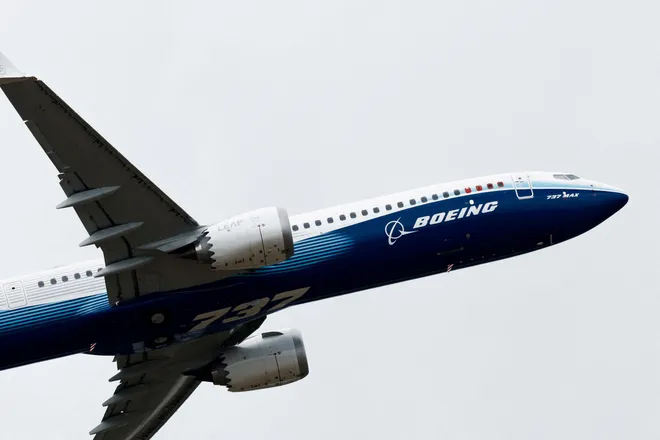'Best contract we've negotiated': Union, Boeing reach tentative deal amid strike threat
Boeing said on Sunday it has reached a tentative agreement with a union representing more than 32,000 workers in the U.S. Pacific Northwest, in a deal that could help avert a possible crippling strike as early as Sept. 13.
If approved, the proposed four-year contract, which includes a general wage increase of 25% and commitment to build the next commercial airplane in the Seattle area, is an important win for new Boeing CEO Kelly Ortberg, who took over last month with a mandate to turn around quality at the planemaker, an issue that a deal with labor could help.
The first full labor deal in 16 years would also include better retirement benefits and giving the union greater input in the safety and quality of the production system. The union called it the best contract it had ever negotiated and described union workers as committed to building quality planes.
Boeing is wrestling with a quality crisis and faces scrutiny from regulators and customers, after a door plug on a near-new MAX blew off an Alaska Air jetliner while in mid-air in January.
The deal would need to be approved on Thursday by Boeing factory workers near Seattle and Portland, Oregon, represented by the International Association of Machinists and Aerospace Workers (IAM). Boeing workers could reject the deal if it gets less than majority support. A strike is possible if two-thirds support a work stoppage in a second vote.
Boeing wants you to feel safe:How it's working on safety in its factories

If ratified by union members on Thursday, the deal would commit Boeing to building the replacement to the workhorse 737 at its Pacific Northwest facilities if the project is started during the life of the contract. However, it is not clear when the planemaker would announce its next jet.
Boeing and rival Airbus are in the early stages of drawing up strategies for replacements of their best-selling single-aisle models expected to enter service in the late 2030s.
Boeing’s decision to commit early to its main Northwest planemaking hub for new models contrasts with previous efforts to compete in different locations, which have irked the IAM.
"This would go along with our other flagship models, meaning job security for generations to come," said Boeing Commercial Airplanes CEO Stephanie Pope in a message to employees.
Ortberg, who is under pressure to change Boeing's culture to improve quality, also needs to address labor relations and the company's future, said aerospace analyst Richard Aboulafia. Ortberg is a former Rockwell Collins executive who moved to Seattle to head the company.
"Changing the culture starts with a different attitude towards labor and towards the future with new product development," Aboulafia said on Sunday.
Boeing simultaneously faces significant financial pressures as it continues to lose money. In July it posted a second-quarter net loss of $1.44 billion.
Last week, Wells Fargo said Boeing's annual free cash flow target of $10 billion may be delayed by about two years to 2027-28 and the company may have to raise $30 billion before developing a new aircraft. Wells Fargo analyst Matthew Akers said Boeing carries about $45 billion net debt.
An accepted deal would secure labor peace for Boeing at a time when the planemaker is burning cash and trying to raise production of its strongest-selling 737 MAX to a target rate of 38 aircraft per month by the year's end.
The union fell short of its early goal of achieving a 40% raise but still hailed the agreement.
"Although there was no way to achieve success on every single item, we can honestly say that this proposal is the best contract we've negotiated in our history," the IAM union local representing the Boeing workers said in a statement.
The deal comes as workers are capitalizing on tight labor markets to make gains. The United Auto Workers union won a similar 25% general wage pay hike over four-and-a-half years with the Detroit Three last autumn.
The talks had been watched by members of the Biden administration, with Acting Labor Secretary Julie Su last week urging the sides in an interview with Reuters to get a "fair contract."
Su had spoken with both Ortberg, a source familiar with the matter said, and union local head Jon Holden.
The Boeing workers, who produce Boeing's widebody 777 and 767 in addition to the MAX, had voted in favor of a strike mandate in July.
Disclaimer: The copyright of this article belongs to the original author. Reposting this article is solely for the purpose of information dissemination and does not constitute any investment advice. If there is any infringement, please contact us immediately. We will make corrections or deletions as necessary. Thank you.







